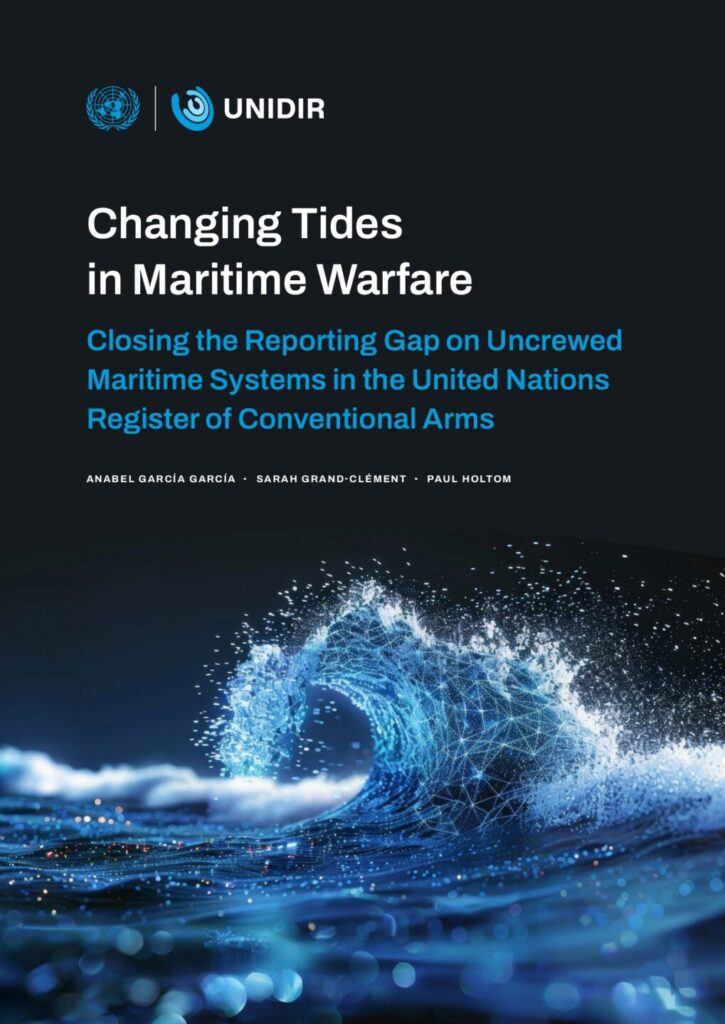Surface and underwater uncrewed maritime systems (UMS) are gaining importance in the maritime domain due to their force multiplier effect and their ability to enhance naval force projection. UMS pose or could pose challenges to international security due to their proliferation, contributing to arms races, illicit use by non-state actors and risks for civilian infrastructure.
This UNIDIR research examines trends in the development and use of UMS between 2019 and 2024, identifying 60 UMS programmes across 17 countries that have utilized a wide range of systems. More than 40 attacks took place during the same period, with a notable rise since 2023.
The United Nations Register of Conventional Arms could play an important role in enhancing mutual trust and confidence between States if it were to contain information on international transfers and acquisitions of armed UMS. Due to their technical characteristics, however, most UMS fall outside the Register’s reporting categories, therefore remaining unreported.
This research puts forward four options for consideration by the Group of Governmental Experts in 2024-2025 on the continuing operation and future development of the Register. These options could also be considered by States participating in other multilateral instruments that contribute to increasing transparency in international transfers and acquisitions.
Citation: Anabel García García, Sarah Grand-Clément, Paul Holtom, "Changing Tides in Maritime Warfare: Closing the Reporting Gap on Uncrewed Maritime Systems in the United Nations Register of Conventional Arms", UNIDIR, Geneva, 2025, https://doi.org/10.37559/CAAP/25/ERC/03.
